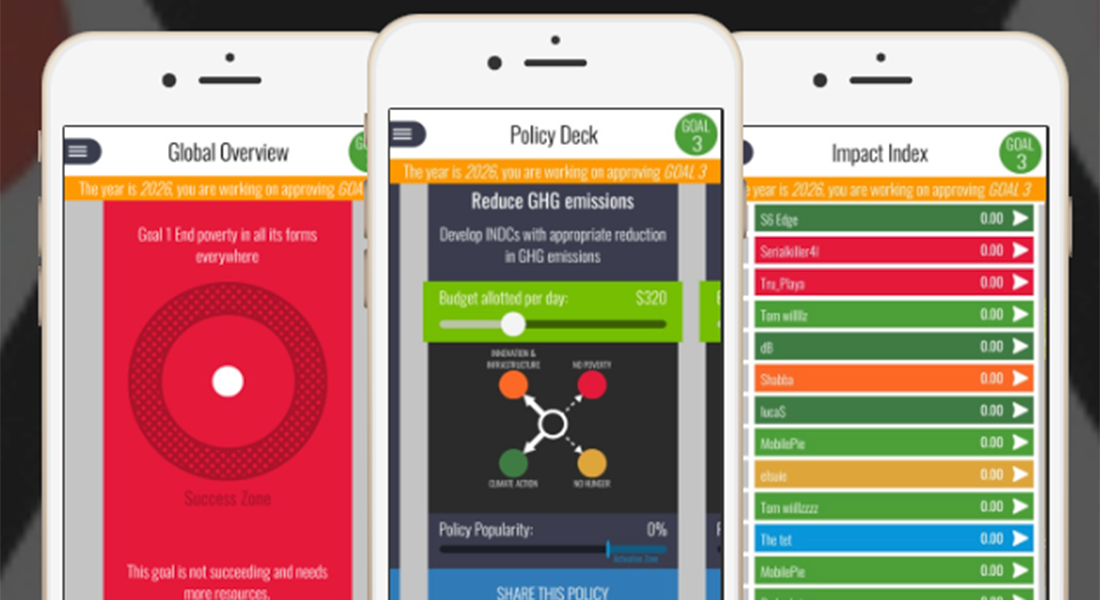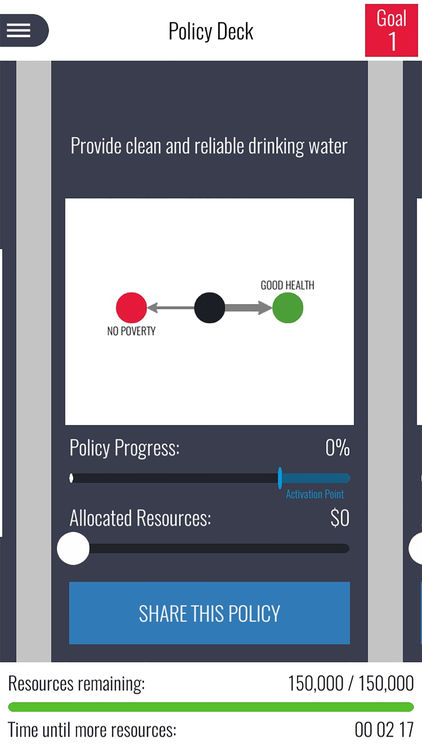'2030 Hive Mind' - a Sustainable Development Goals game
Soumya Chattopadhyay, Senior Research Fellow, describes why he contributed to gamify the Sustainable Development Goals.

"Earlier this month, I set off for Bonn to help launch '2030 Hive Mind', a Sustainable Development Goals (SDGs) game at the ODI’s first annual Global Festival of Ideas – the world's first playable conference on sustainable development.
The idea was to bring influential people, policy-makers, development wonks (like me), and activists together to get a sense of the knock on effects – both positive and negative – that focusing on one SDG can have on other. We aimed to find ways to collaborate and coordinate through the pushes and pulls of many different actors, objectives and motivations"
How to play
You’re a government minister in a low-income country. Your goal: to reach your department’s SDG by 2030. You start out with a set of policy options, and can buy or borrow more from others.
You must stick within your yearly budget. The twist, of course, is that there is never enough money. And even with the right resources, your plans won’t work without collective political will.
Sounds unfair? These are the kinds of difficult choices made by policymakers on a daily basis. Although tasking and complex, the good news is the game is winnable, and winning strategies could be pathways to meeting the SDGs.
Why a game?
Fun as it is, there is a very serious point to our game. The SDGs are so complex and interdependent that we urgently need fresh thinking and new approaches to deliver them in time.
The game gives 'players' a safe space to try out different strategies and helps them see that we can’t get to where we need to be without working together. It allows us to experiment and find, through trial and error, coherent, coordinated ways to manage the inevitable trade-offs and compromises we’ll need on our march towards 2030
Gameplay
Players quickly understood that policies compete with one another, and that investing in a smart idea for one goal can actually set others back. On the flip side, they saw that some policies complement each other, working towards multiple goals; one woman sitting next to me called out for more rural roads, exclaiming 'they help achieve so many goals!'
More than 450 people played our beta version of the game at the event, which looked at seven SDGs. Each player worked towards a randomly assigned SDG for a fictional low-income country with chronic developmental needs. New budget reserves were released every two hours, representing each year from 2015 to 2029. By the end, our players collectively achieved four SDGs on gender equality, health and well-being, ending hunger, and combatting climate change.
By the end, our players collectively achieved four SDGs on gender equality, health and well-being, ending hunger, and combatting climate change.
As trite as it sounds, winning wasn’t the point of the game; it was unifying players, in a collaborative decision-making experience, as part of a 'Hive Mind'. I saw players trade policies, form coalitions with others to pool resources, and create campaigns to raise awareness and highlight development gone awry. I saw players recalibrate their best laid plans to deal with unexpected shocks built into the game. In short, I saw people exit their silos and try to make policies work in a dynamic, shifting environment.
Where next?
The SDGs are highly interdependent – objectives overlap; policies compete and complement; countries have to set priorities, sequence their efforts and manage trade-offs. The game simulates some of these complexities to spark inventive solutions and build alliances. This was not a modelling exercise, although the game was built on empirical evidence. Nor was it prescriptive. The game was designed to help people, regardless of their backgrounds, engage in a complex decision-making process.
The game’s live feedback and dynamics were a great learning tool for recognising the limitations of acting in isolation, and the power of collaborating. We also saw how advocacy campaigns can organically emerge and interact with traditional policymaking to work towards a higher common purpose.
The next step is to make the game’s software open-source for other groups to adapt and play. We hope to extend it to cover all 17 SDGs, and make it adaptable to different contexts. Negotiate, collaborate, advocate – be a team player to ensure we deliver on our SDG promises and shape our collective destiny for generations to come.
Original blogpost from Overseas Development Institute's website.
If you found this interesting, please read more about the app and download.
